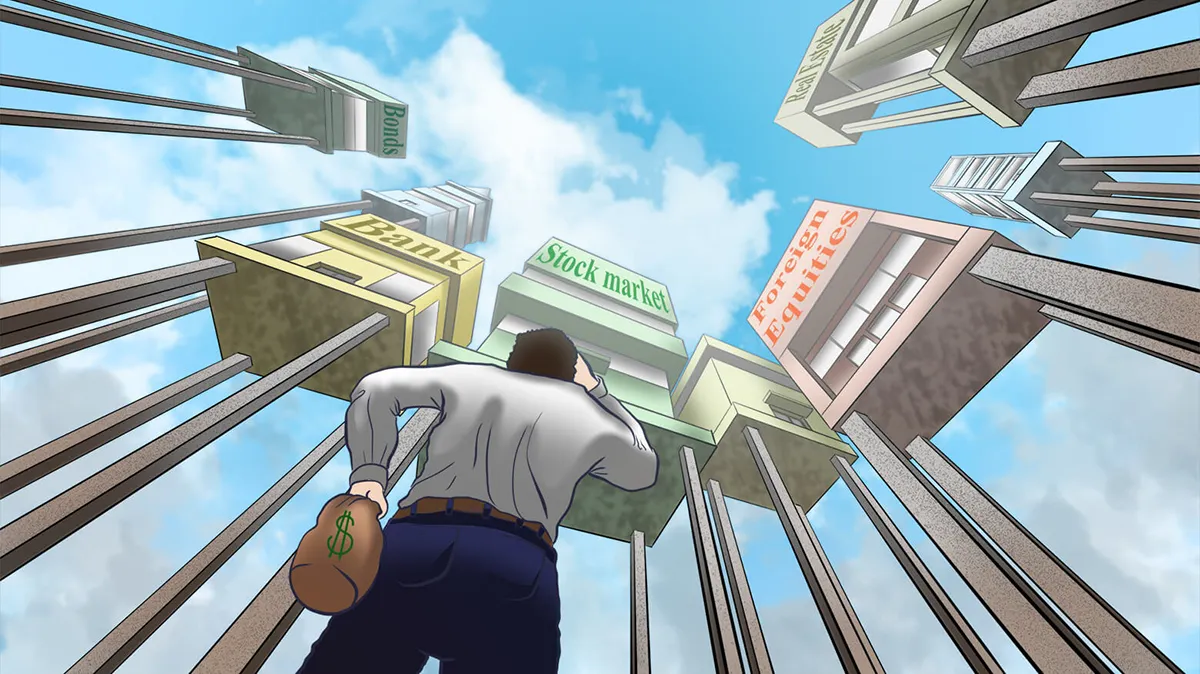I was having lunch with a close friend of mine. He mentioned that he had accumulated a significant sum of money and did not know what to do with it. It was sitting in bonds, and inflation was eating its purchasing power at a very rapid rate.
He is a dentist and had originally thought about expanding his business, but a shortage of labor and surging wages turned expanding into a risky and low-return investment. He complained that the stock market was extremely expensive. I agreed.*
He said that the only thing left was residential real estate. I pushed back. “What do you think will happen to the affordability of houses if – and most likely when – interest rates go up? Inflation is now 6%. I don’t know where it will be in a year or two, but what if it becomes a staple of the economy? Interest rates will not be where they are today. Even at 5% interest rates [I know, a number unimaginable today] houses become unaffordable to a significant portion of the population. Yes, borrowers’ incomes will be higher in nominal terms, but the impact of the doubling of interest rates on the cost of mortgages will be devastating to affordability.”
He rejoined, “But look at what happened to housing over the last twenty years. Housing prices have consistently increased, even despite the financial crisis.”
I agreed, but I qualified his statement: “Over the past twenty, actually thirty, years interest rates declined. I honestly don’t know where interest rates will be in the future. But probabilistically, knowing what we know now, the chances that they are going to be higher, much higher, are more likely than their staying low. Especially if you think that inflation will persist.”
We quickly shifted our conversation toward more meaningful topics, like kids.
It seems that every year I think we have finally reached the peak of crazy, only to be proven wrong the next year. The stock market and thus index funds, just like real estate, have only gone one way – up. Index funds became the blunt instrument of choice in an always-rising market. So far, this choice has paid off nicely.
The market is the most expensive it has ever been, and thus future returns of the market and index funds will be unexciting. (I am being gentle here.)
You don’t have to be a stock market junkie to notice the pervasive feeling of euphoria. But euphoria is a temporary, not a permanent emotion; and at least when it comes to the stock market, it is usually supplanted by despair. Market appreciation that was driven by expanding valuations was not a gift but a loan – the type of loan that must always be paid back with a high rate of interest.
I don’t know what straw will break the feeble back of this market or what will cause the music to stop (there, you got two analogies for the price of none). We are in an environment where there are very few good options. If you do nothing, your savings will be eaten away by inflation. If you do something, you find that most assets, including the stock market as a whole, are incredibly overvalued.
This is why what we do at IMA is so important.
We are doing the only sensible thing that you can do today. We spend very little time thinking about straws or what will cause the music to stop or how overvalued the market is. We are focusing all our energy on patiently building a portfolio of high-quality, cash-generative, significantly undervalued businesses that have pricing power.
This has admittedly been less rewarding than taking risky bets on unimaginably expensive assets. It may lack the excitement of sinking money into the darlings you see in the news every day, but we hope that our stocks will look like rare gems when the euphoria condenses into despair. As we keep repeating in every letter, the market is insanely overvalued. Our portfolio is anything but – we don’t own “the market”.
If you’d like to better understand how we determine the quality of a business and find stocks that are undervalued, check out the 6 Commandments of Value Investing.
*A question may arise: Why did I not tell my dentist friend to pick individual stocks? He runs a busy dental practice and wouldn’t have the time or the training to pick stocks. Why didn’t I offer him our services? IMA manages all my and my family’s liquid assets, but I have a rule that I never (ever!) break – I don’t manage my friends’ money. I’ll help them as much as possible with free advice but will never have a professional relationship with them. I intentionally create a separation between my personal and professional lives. After a difficult day in the market, I want to be able to go for beers with friends and leave the market at the office. Also, this simplifies my relationships with my friends. There is no ambiguity in our friendship.
Key takeaways
- When considering how to invest during inflation, traditional safe havens like bonds are becoming less attractive as their purchasing power is rapidly eroded.
- Real estate, often seen as a hedge when learning how to invest during inflation, may become less appealing if interest rates rise significantly, potentially affecting affordability and prices.
- The stock market, while historically a good option for how to invest during inflation, is currently at peak valuations, making index funds less attractive for future returns.
- When figuring out how to invest during inflation, it’s crucial to recognize that most assets are overvalued, creating a challenging environment for investors seeking to preserve and grow wealth.
- Our approach to how to invest during inflation at IMA focuses on building a portfolio of high-quality, cash-generative, significantly undervalued businesses with pricing power, which we believe will be better positioned to weather inflationary pressures and market downturns.









I activly use Options to hedge my positions and am curious about your position on hedging ?
I follow -all- your Spotify episodes, they show a lot of common sense and clarity in your thoughts. You teach us valuable lessons. I think it should not be an impediment to have friend clients. If you have all (or almost all) your money in your ideas, your clients should can follow you. Otherwise, your friends could be with another -and worse- capital manager. They NEED to know all the information about your system and also the possible scenarios (specially the worst). You could let your friends join your wonderful trip. My opinion.
Thanks for sharing your knlowledge, Vitaly.
JMB.
I ALWAYS enjoy reading Vitalyiy’s articles. For the record, I’m a DIY investor. Having been in the investment industry myself I now have the luxury of managing my own money.
I totally agree with this piece. The ONLY thing you can do is invest in top quality companies that produce good cash flows which are not overpriced.
Of course, if the market goes for a swan dive, my portfolio will be hit too, but when that happens (its inevitable) relatively speaking I will preserve a good portion of my net worth in nominal terms. Its then just a matter of taking advantage of market hysteria to switch into ultra, ultra cheap bargains when the market throws the baby out with the bathwater.